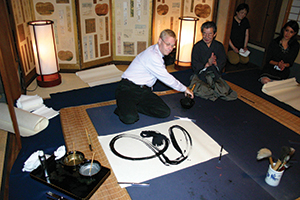 The pen, we are told, is mightier than the sword, and while it is tempting to pooh-pooh this aphorism, there is no denying that a pen in the right hand still packs a powerful punch. Alex Kerr, writer, scholar, traditional arts expert, restoration entrepreneur, and social, cultural and environmental critic-at-large, makes a strong case for the veracity of this old adage. Had he chosen a conventional career path, Kerr would likely have ended up stuffed away in the Asian Studies department of some North American university, but thanks to two best-selling books and a bewildering range of cultural activity he has carved out a role for himself as one of Japan’s most influential advocates of social change and cultural and environmental revitalization. For Kerr, the impetus for activism stems quite simply from the opportunity to take action. “I do these things because I can,” says Kerr. “I at first thought it couldn’t be done in Iya [in Shikoku], but now I see that I can. I thought it couldn’t be done in Kyoto, but there’s a new mood in Japan and now change seems possible.” For a man best known for his bleak prognostications of the collapse of Japan’s cultural and environmental landscape and his excoriation of the country’s political and corporate elite, such an assertion represents a remarkable change of tune. “We’re still a long way off,” he asserts, “but I’m more hopeful now than I ever have been.”
The pen, we are told, is mightier than the sword, and while it is tempting to pooh-pooh this aphorism, there is no denying that a pen in the right hand still packs a powerful punch. Alex Kerr, writer, scholar, traditional arts expert, restoration entrepreneur, and social, cultural and environmental critic-at-large, makes a strong case for the veracity of this old adage. Had he chosen a conventional career path, Kerr would likely have ended up stuffed away in the Asian Studies department of some North American university, but thanks to two best-selling books and a bewildering range of cultural activity he has carved out a role for himself as one of Japan’s most influential advocates of social change and cultural and environmental revitalization. For Kerr, the impetus for activism stems quite simply from the opportunity to take action. “I do these things because I can,” says Kerr. “I at first thought it couldn’t be done in Iya [in Shikoku], but now I see that I can. I thought it couldn’t be done in Kyoto, but there’s a new mood in Japan and now change seems possible.” For a man best known for his bleak prognostications of the collapse of Japan’s cultural and environmental landscape and his excoriation of the country’s political and corporate elite, such an assertion represents a remarkable change of tune. “We’re still a long way off,” he asserts, “but I’m more hopeful now than I ever have been.”
Bilingual and almost absurdly eclectic in his interests, Kerr has long been something of a rogue scholar. Born in Bethesda, Maryland in 1952, he first became acquainted with Japan during his father’s naval posting to Yokohama between 1964 and 1966, an experience that led him to embark on a degree in Japanese Studies at Yale University (with a brief term of study at Keio University on a Rotary scholarship), and later a degree in Chinese Studies at Oxford University as a Rhodes Scholar. It was during his study term at Keio that Kerr traveled to the remote Iya Valley in Tokushima Prefecture, Shikoku, where he purchased an ancient thatched roof farmhouse in 1973, which he named Chiiori (“House of the Flute”). This property would later become the epicenter of the restoration and environmentalism-focused Chiiori Project (later renamed Chiiori Trust), which he would found over two decades later. Following completion of his studies at Oxford in 1977, Kerr returned to Japan and settled in the Kyoto suburb of Kameoka, where he assumed the post of manager of the school of traditional Japanese arts of the Oomoto Foundation, a Shinto-related religious group that has long emphasized interfaith activities and traditional arts. Retaining this position for two decades, Kerr diversified his activities in the 1980s, serving as an art consultant for Texas real estate baron and Asian art enthusiast 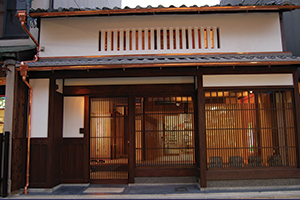 Trammell Crow. During this time he began traveling extensively in Southeast Asia, primarily to Thailand, ultimately moving his permanent base to Bangkok in 1997. Ironically, however, the decade since his relocation has seen him spend more time in Japan than ever, with his twin bestsellers, Lost Japan and Dogs & Demons catapulting him to the forefront of social and political activism in Japan and establishing him one of the country’s most dynamic public figures.
Trammell Crow. During this time he began traveling extensively in Southeast Asia, primarily to Thailand, ultimately moving his permanent base to Bangkok in 1997. Ironically, however, the decade since his relocation has seen him spend more time in Japan than ever, with his twin bestsellers, Lost Japan and Dogs & Demons catapulting him to the forefront of social and political activism in Japan and establishing him one of the country’s most dynamic public figures.
While the relocation of his primary base from Kyoto to Bangkok coincided with the penning of some of his most vitriolic criticism of modern Japan, Kerr is quick to disassociate the two. “A lot of people assume that I got fed up with Japan and left,” says Kerr. “In fact that had nothing to do with it. I’ve been spending a lot of time in Southeast Asia since the 1980s, and since the early nineties I’ve had an apartment in Bangkok. Before making the move, I was spending half the year in Bangkok. Ironically, now that I have my base there I spend about only one third of the year in Bangkok, and the rest of the year in Japan.” Kerr notes that having these twin bases has helped provide him with the perspective he needs when writing about the two countries. “Both Lost Japan and Dogs & Demons were written in Thailand, and my upcoming book Bangkok Found was written in Japan.” In Thailand and elsewhere in Southeast Asia, Kerr discovered a treasure trove of art and culture that proved to be his third window into East Asian culture, after his studies of Japan and China. “There’s a massive amount of East Asia that I knew nothing about, in Thailand, Cambodia, Burma and so on. It’s endlessly fascinating.” In recent years, Kerr has expanded his long-running traditional arts workshops, (now operated outside the ambit of Oomoto in Kyoto under the name Origin), to Thailand, where he manages workshops on Thai dance, music, flower arrangement and so on at an old restored Thai house in Bangkok, as well as in Thailand’s second city, Chiang Mai. “Culturally, Thailand is the closest country [in Southeast Asia] to Japan, with its monarchy, its continuity with the past uninterrupted by colonialism and so on. And it has a lot of the same social attitudes.”
While Thailand represents an increasingly important facet of his eclectic intellectual and professional interests, it is here in Japan that Kerr has emerged as a provocative and influential voice of dissent against an antiquated political and corporate culture hell-bent on destroying the country’s cultural and environmental landscape, and the social structures that perpetuate this process. Lost Japan, originally written in Japanese and published in 1993 under the name Utsukushii Nihon no Zanzo (Last Glimpse of Beautiful Japan), led him to be named the first foreign recipient of the Shincho Gakugei-sho Literary Prize. This generated a small but significant degree of anxiety surrounding the ongoing vandalism of the Japanese countryside by unnecessary pork-barrel construction projects and the destruction of the traditional cityscapes of Kyoto and other historic centers in the name of ‘progress’. This book, however, was to be but a warm-up for his most provocative statement to date, the brutal, exhaustively research exposé Dogs & Demons: Tales of the Dark Side of Japan. Published in 2001 following six years of research, Dogs & Demons saw Kerr systematically dismantle the morass of misguided policies and institutionalized corruption that he saw as leading Japan down a path to economic, cultural and environmental ruin, and its inextricable ties to other systemic problems, including a dysfunctional education system and a complicit press, compounded by a knee-jerk Japan-apologist culture among overseas Japanologists. An incendiary and controversial tome, Dogs & Demons proved to be a lightning rod for debate over the plight of modern Japan, both within Japan (where it became a bestseller under the title Inu to Oni) and overseas, and ultimately helped spark a major paradigm shift among policymakers in Japan.
Looking back at the impact of D&D, Kerr is quick to downplay its uniqueness. “It’s part of a larger trend,” he asserts. “There are a lot of Japanese writers talking about all this.” However, he does note that his status as a foreign observer less vulnerable to social censure and press censorship than many of his Japanese counterparts resulted in a wider readership than it might otherwise have had. “After [the book came out], I had people saying to me, “Yes, finally someone’s said it. Thank you.” People at JTB have read the book. The top bureaucrats at the Ministry of Land, Transport and Infrastructure have read it. As a result of this and other books that came out in Japan, people are starting to rethink policy, especially concerning public works projects.” Outside Japan, the book has made waves in ways that the author could never have imagined; launched in 2006, the Chinese edition of Dogs & Demons has since been made recommended reading for Communist Party cadres by the Beijing government, where it has emerged as a vehicle for back-door political and social criticism. Explains Kerr, “If you say these sorts of things about China, you get censored. However, if you say these things about Japan, it’s just fine as far as officials are concerned, and they all know that China faces so many of the same problems.”The seven years since the release of “Dogs & Demons” have proven to be the busiest of Kerr’s life, particularly since 2004 when an uncanny chain of events saw him become chairman and founding director of Iori Co., a Kyoto-based company dedicated to the restoration of the city’s iconic townhouses, the kyo-machiya. “It was a real miracle,” says Kerr. “I was asked by a banker to examine one of Kyoto’s last rising kilns whose owners were concerned about how to save it. I met with the accountant, whose office was in a machiya, and I commented in passing that it would be great if visitors to Kyoto could have the opportunity to rent one. And she made it happen. Before I knew it I had my own company. The kiln unfortunately wasn’t saved, but a lot of other buildings ended up being saved in the process.” Indeed, the years since the genesis of Iori have seen a remarkable resurgence in interest in Kyoto’s grand old townhouses, bolstered by a tourism boom in Kyoto, and thanks in large part to the perseverance of Kerr and his colleagues major policy changes have been realized. One of the most positive recent developments, Kerr asserts, is a groundbreaking new zoning law known as the ‘Scenery Law’ (keikan-hou) that was adopted in late-2007 that requires that new buildings have sloping roofs and traditional-style tiles, so as to better blend with the traditional roofline, although Kerr concedes that all is not yet well in the former capital city. “On the one hand, the destruction of the city is continuing as always. On the other hand, there is a growing move to rebuild and restore [these old buildings]. Unfortunately, the [keikan] law came with a six-month grace period, which has actually resulted in an acceleration of demolition and rebuilding ahead of enforcement. But in the long run, it’s a positive move.”
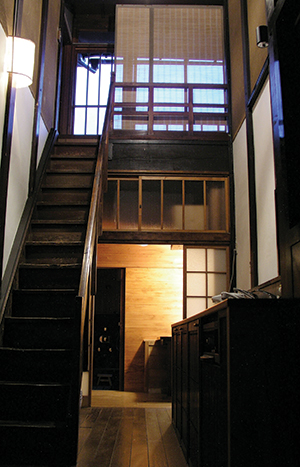 While Kerr’s activist formula might be seen as slow and methodical by some, his track record for gaining followers, including unlikely figures like conservative Tokyo governor Shintaro Ishihara who famously championed “Dogs & Demons,” and racking up support for his causes is nothing short of remarkable. Kerr’s publicity on behalf of his beloved Iya Valley saw him named “Special Ambassador for Tokushima Prefecture” by the prefecture’s governor in the late-1990s, and since the release of D&D he has been one of the country’s most in-demand lecturers and has been interviewed by countless publications. Kerr’s brand of non-confrontational lobbying, however, contrasts sharply with that of Japan’s other famous American-born activist, foreigners’ rights crusader and naturalized Japanese citizen Arudou Debito (born David Aldwinckle), with whom Kerr debated a number of years ago over activist tactics. Kerr, who for a time questioned the value of Arudou’s hard-line, in-your-face approach, considering it counter-productive in the context of Japanese society, admits that his views have changed. “There’s more than one way to do these things. My way is a lot more old-fashioned, more of a soft touch, holding up my flag and hoping that people will follow. Arudou is out there fighting and I’m glad he’s out there doing it his way. If I did it that way, I would invariably fail, at least in the areas that I’m concerned with. But for the types of social problems that Arudou faces, somebody has to do it, take these issues to the courts.” There is, however, something undeniably infectious about the way in which Kerr goes about advancing his causes, his anger forever counterbalanced by an equally palpable joie de vivre that underlines the reasons why the preservation of Japan’s traditional culture, urban architecture and rural landscapes remains worth fighting for. “I have a new book coming out next March, untitled as of yet, that my editor wants to call ‘Alex Kerr’s Kyoto’. Basically it’s about what’s wonderful about [the old structures in the city] and why they’re worth preserving. It’s much more uplifting.”
While Kerr’s activist formula might be seen as slow and methodical by some, his track record for gaining followers, including unlikely figures like conservative Tokyo governor Shintaro Ishihara who famously championed “Dogs & Demons,” and racking up support for his causes is nothing short of remarkable. Kerr’s publicity on behalf of his beloved Iya Valley saw him named “Special Ambassador for Tokushima Prefecture” by the prefecture’s governor in the late-1990s, and since the release of D&D he has been one of the country’s most in-demand lecturers and has been interviewed by countless publications. Kerr’s brand of non-confrontational lobbying, however, contrasts sharply with that of Japan’s other famous American-born activist, foreigners’ rights crusader and naturalized Japanese citizen Arudou Debito (born David Aldwinckle), with whom Kerr debated a number of years ago over activist tactics. Kerr, who for a time questioned the value of Arudou’s hard-line, in-your-face approach, considering it counter-productive in the context of Japanese society, admits that his views have changed. “There’s more than one way to do these things. My way is a lot more old-fashioned, more of a soft touch, holding up my flag and hoping that people will follow. Arudou is out there fighting and I’m glad he’s out there doing it his way. If I did it that way, I would invariably fail, at least in the areas that I’m concerned with. But for the types of social problems that Arudou faces, somebody has to do it, take these issues to the courts.” There is, however, something undeniably infectious about the way in which Kerr goes about advancing his causes, his anger forever counterbalanced by an equally palpable joie de vivre that underlines the reasons why the preservation of Japan’s traditional culture, urban architecture and rural landscapes remains worth fighting for. “I have a new book coming out next March, untitled as of yet, that my editor wants to call ‘Alex Kerr’s Kyoto’. Basically it’s about what’s wonderful about [the old structures in the city] and why they’re worth preserving. It’s much more uplifting.”
Vindicated and emboldened by recent developments and an upsurge of interest in his causes, Alex Kerr is indeed more upbeat than he’s been in a long time, although he remains cautious in his optimism. “What this country needs is a big cleanup,” he declares. “Japan is littered with ugly detritus that all needs to be torn down and gotten rid of. And we’re now seeing the first little steps in this direction.” With a thriving restoration business, a frenetic schedule of lectures and cultural activities and two new books on the horizon, Kerr’s energy and enthusiasm show no signs of abating. And with the Japanese public’s growing embrace of his dream of a return to a beautiful Japan full of edifying architecture, a picturesque natural environment and a thriving sphere of traditional culture, Japan’s most prominent ex-pat muckraker will have little time to sit on his laurels as a steady growth in demand for his inimitable services is more or less assured.
Story by Benjamin Freeiand
From J SELECT Magazine, June 2008

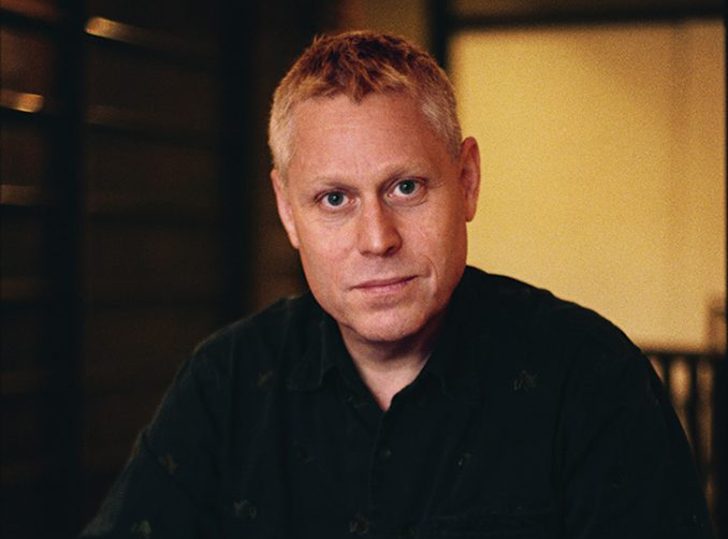





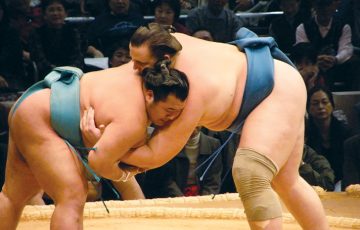



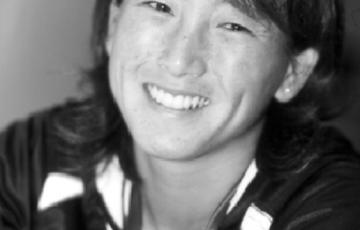
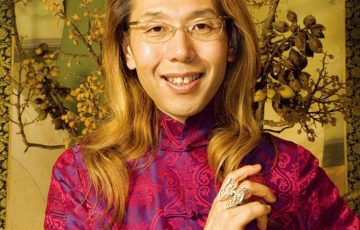


Recent Comments